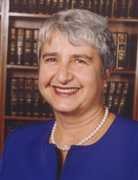Anzac Day Speech

Rau rangatira mā, e huihui nei, tēnei aku mihi māhana ki a koutou. Kia ora tātou katoa.
Distinguished guests, ladies and gentlemen, warm greetings to you all.
This Anzac Day is the centenary of the last 25th of April that had no major meaning for the people of New Zealand.
On the 25th of April 1914, New Zealand, with a population of just over one million people, was prosperous and at peace.
Although the country had a compulsory military training scheme in place, I think it is fair to say no one in New Zealand that day was expecting a war that year. Certainly no one anticipated a world war on an industrial scale.
But just four months later, on the 5th of August, the Governor General, Lord Liverpool, announced from the steps of Parliament that New Zealand was already at war.
In the week following that announcement, 14,000 men rushed to join up, motivated by a sense of duty and a desire for adventure overseas.
About 8,500 sailed with the Main Body of the New Zealand Expeditionary Force in October, our ten ships joining 28 Australian ships.
They sailed in convoy, and ended up not on the Western Front, as originally expected, but in Egypt where they spent about four months training on the desert sands.
On the 25th of April 1915, more than 3000 New Zealanders landed at what is now Anzac Cove on the Gallipoli peninsula as part of the Australia and New Zealand Army Corps.
We have in our mind’s eye the image of them climbing up the rugged hills above the beach that day – and are keenly aware that by the end of it one in five had been killed or wounded.
Those men of the landing, and the thousands of reinforcements who joined them in the eight-month campaign, remain our touchstone in terms of courage, endurance and comradeship.
The ‘spirit of Anzac’ lives on today.
It remains a great unifying force between New Zealand and Australia, the ultimate expression of the trans-Tasman bond.
And it encompasses the attributes we recognise in our soldiers as they undertook their difficult and dangerous mission.
Those attributes include being brave in the face of danger, being loyal to your mates, and staying cheerful in tough conditions.
Although we term this “the Anzac spirit” these characteristics apply no less to our soldiers who fought in the New Zealand Division on the Western Front, and in the Mounted Division in the Sinai-Palestine Campaign during the First World War.
They also apply to New Zealanders who served in the Second World War, in subsequent conflicts and on peacekeeping missions – all of whom we remember on Anzac Day.
On this particular Anzac Day, as we approach four years of commemoration of the First World War, I want to take this opportunity to pay tribute to those Second World War veterans who are still with us. Seven decades on, almost all of them are in their nineties.
These are men who went into combat only about twenty years after their fathers and uncles – so they were well aware of what war would mean.
I know that many individuals, families and communities are currently engaged in projects to find out more about the soldiers, sailors, airmen and nurses of the First World War.
Every year we pledge, ‘At the going down of the sun, and in the morning, we will remember them’ and in this coming four years we will do so on a personal, national and international scale.
We will also reflect, as we do every Anzac Day, on what it means to be a New Zealander and a world citizen.
New Zealand soldiers of the First World War were proud New Zealanders and proud members of the British Empire.
Today we are a proudly bi-cultural nation with an increasingly multicultural population, a member of the Commonwealth of Nations with growing links to other countries in our own region and beyond.
But none more so than to Australia, our Anzac partner, the nation with which we still have our closest relationship on all levels – social and economic, military and strategic.
As New Zealand soldiers followed their Australian comrades ashore at Anzac Cove they were enormously impressed by their bravery, and many noted this in their diaries, letters home and, later, memoirs.
The interviewers of the World War One Oral History Archive say that when veterans were asked what the Australians were like, they almost uniformly answered, “Tough! Great soldiers!”
And they often used exactly the same words to describe the Turks – their much respected enemy.
On Wellington’s rugged south coast stands the Ataturk Memorial, with its message from the man who led the Turks at Gallipoli as Mustafa Kemal and became the great unifying leader of post-war Turkey, Ataturk.
Ataturk’s message on the memorial addresses the mothers of New Zealand: “Wipe away your tears. Your sons are now lying in our bosom and are in peace. After having lost their lives on this land they have become our sons as well.”
The graciousness of that message is echoed in the welcome the Turkish people give us every year as we commemorate our Anzac Day on their soil.
Next year we will mark the centenary of the Anzac landing and the beginning of a campaign in which we lost almost 2800 men.
This year we look back a century to the year before those cataclysmic events – when the sons and daughters of New Zealand lived with just the same kinds of hopes and dreams and ambitions as our young people have today.
Reflecting on that gives a special poignancy to this Anzac Day 2014.
Kia ora, kia kaha, kia manawanui, huihui tātou katoa
ENDS
